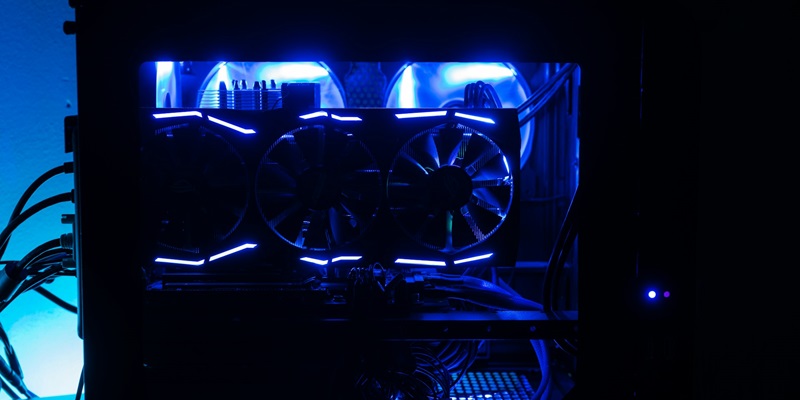NVIDIA’s GeForce RTX 40 GPUs have attracted attention for their impressive performance and capabilities. However, these powerful graphics processing units have become the target of various nefarious activities. In this article, we delve into the world of repurposing and scams surrounding these GPUs, shedding light on both the deceptive practices employed by scammers and the unconventional designs created by modders.
Scam involving counterfeit GPUs
With the rise of online shopping, unsuspecting customers have fallen victim to a new and troubling scam. Recently, an incident surfaced involving a counterfeit GPU purchased from Amazon. This fraudulent unit not only turned out to be fake but also exhibited significant damage, including a fried printed circuit board (PCB) and an altogether different chip. Such incidents raise concerns about the authenticity and integrity of GPUs sold through online marketplaces.
In a completely separate case, a Chinese firm has taken it upon itself to create an intriguing design using repurposed NVIDIA GeForce RTX 40 mobility GPUs. This unofficial design showcases not only the modding capabilities but also the creative flair of enthusiasts and designers. The resulting desktop cards bear the repurposed GPUs and boast an unconventional aesthetic that merges function and aesthetics.
Weirdly designed white and purple GPUs
Chinese sellers on Goofish, an online marketplace, have added a peculiar twist to the repurposing trend. They are offering the NVIDIA GeForce RTX 4090M and the GeForce RTX 4080M mobile GPUs in bizarrely designed white and purple color combinations. These unorthodox color choices may appeal to niche audiences, but their impact on overall performance remains to be seen.
Performance comparison
It is important to note that repurposed GPUs, due to their inherent design constraints, might not match the performance levels of their desktop counterparts. While the novelty and customization are appealing, users should temper their expectations and be aware of the potential trade-offs in terms of performance.
Comparisons with official NVIDIA GPUs
Despite being modified versions, the Chinese listings boldly position these repurposed GPUs as competitors to NVIDIA’s official offerings. The modified GPUs are compared to NVIDIA’s GeForce RTX 4070 and RTX 4070 Ti, offering a rough approximation of their performance levels. While such comparisons can be informative, it is crucial to remember that these repurposed GPUs may not deliver the same level of performance or reliability as the official NVIDIA GPUs.
Pricing of the modified GPUs
The pricing of these modified GPUs varies greatly. The GeForce RTX 4090M desktop GPU, listed at a shocking 13,800 yuan or around $1,900 US, appears to be a likely bogus listing due to its exorbitant price. However, the GeForce RTX 4080M desktop GPU is much more reasonably priced at around 4,000 yuan or $555 US, making it an interesting option for those seeking cost-effective alternatives to NVIDIA’s official offerings.
Importance of purchasing from trusted sources
Given the prevalence of scams and the potential risks associated with repurposed GPUs, it is imperative for consumers to exercise caution. Opting for official sources and reputable retailers with a proven track record is crucial to avoid falling prey to unscrupulous sellers and to ensure the genuineness and reliability of PC components. Researching the reputation of the seller and reading customer reviews can provide valuable insights.
The repurposing and scamming surrounding NVIDIA’s GeForce RTX 40 GPUs highlight both the ingenuity of modders and the deceptive practices employed by scammers. While some repurposing efforts result in interesting and creative designs, users must remain vigilant to avoid falling victim to counterfeit products or underperforming GPUs. By opting for trusted retailers and official sources, users can navigate the PC industry with confidence, safeguarding their investments and enjoying a satisfying gaming or computing experience.

